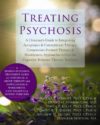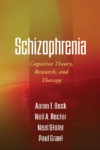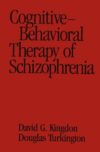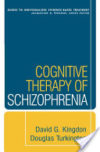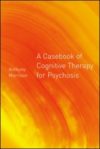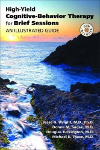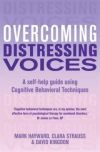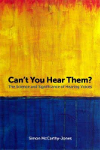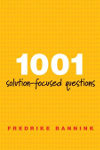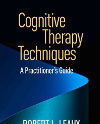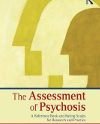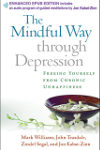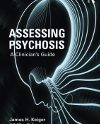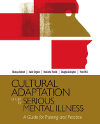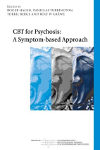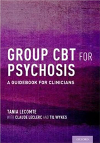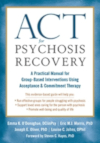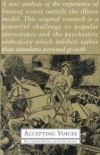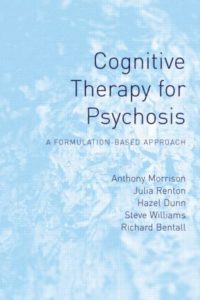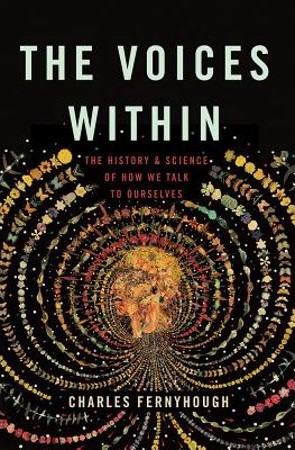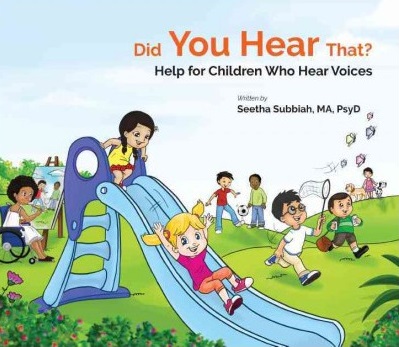Websites | Courses | Recommended Books | Book List | Videos | Apps
Videos
Eleanor Longden: “The Voices in my Head”
TED Talk
This is a recent TED talk by Eleanor Longden. To all appearances, Eleanor Longden was just like every other student, heading to college full of promise and without a care in the world. That was until the voices in her head started talking. Initially innocuous, these internal narrators became increasingly antagonistic and dictatorial, turning her life into a living nightmare. Diagnosed with schizophrenia, hospitalized, drugged, Longden was discarded by a system that didn’t know how to help her. Longden tells the moving tale of her years-long journey back to mental health, and makes the case that it was through learning to listen to her voices that she was able to survive.
Click here for the transcription of Eleanor’s TED Talk.
Click here for a video (in French) about the use of avatars in the treatment of schizophrenia.
Compassion for Voices: A tale of courage and hope
Video
This is a 5-minute animated film about Stuart, a man who hears voices. Developed by King’s College London, this video sheds light on the effectiveness of Compassion Focused Therapy for treating voices.
Websites
The following websites provide further information and online resources:
| Title | Website |
|---|---|
| New Harbinger Partner Website: Book Accessories | www.newharbinger.com/treating-psychosis/accessories |
| Hearing Voices Network | www.hearing-voices.org |
| International Hearing Voices Network | www.intervoiceonline.org |
| Schizophrenia Society of Ontario | www.schizophrenia.on.ca |
| Schizophrenia Society of Canada | www.schizophrenia.ca |
| Early Psychosis Intervention Ontario Network | www.epion.ca |
| Early Psychosis | www.earlypsychosis.com formerly www.psychosissucks.com |
| National Alliance on Mental Health | www.nami.org |
| Dual Diagnosis (Concurrent Disorders) | www.dualdiagnosis.org |
| Rethink | www.rethink.org |
| Paranoid Thoughts | www.paranoidthoughts.com |
| Gloucestershire Hearing Voices Group | www.hearingvoices.org.uk/info_resources11.htm |
| Greater Good in Action of Berkeley | www.ggia.berkeley.edu |
| National Empowerment Center | www.power2u.org |
| Meditation and Psychotherapy | www.meditationandpsychotherapy.org |
| The Mindful Path to Self-Compassion – Dr. Christopher Germer | www.chrisgermer.com |
| Compassionate Mind Foundation | www.compassionatemind.co.uk |
| Centre for Mindfulness Studies | www.mindfulnessstudies.com |
| Mindfulness Toronto | www.mindfulnesstoronto.ning.com |
| The Mindfulness Clinic | www.themindfulnessclinic.ca |
| Dr. Kristen Neff – Self-Compassion | www.self-compassion.org |
| Dr. Dennis Tirch – Mindful Compassion | www.mindfulcompassion.com |
| Beck Institute of CBT | www.beckinstitute.org |
| Virginia Lafond’s CBT Blog | www.virginialafondcbt.wordpress.com |
| Academy of Cognitive Therapy | www.academyofct.org |
| Improving Sleep with CBT | www.cbtforinsomnia.com |
| Improving Sleep & Insomnia | www.helpguide.org/life/insomnia_treatment.htm |
| Mental Wellness Today | www.mentalwellnesstoday.com |
| Mental Health Information | www.sane.org.uk |
| Authentic Happiness – Positive Psychology | www.authentichappiness.sas.upenn.edu |
| Good Days Ahead | www.mindstreet.com |
| CBT Psychosis Online Training | www.praxiscbtonline.co.uk |
| Virtual Reality Programs | www.virtuallybetter.com |
| MoodGYM Training Program | www.moodgym.com.au |
| Sounds True Spiritual Guidance | www.soundstrue.com |
| Group Support | www.mind.org.uk |
| Downloadable Therapy Worksheets and CBT Tools | www.getselfhelp.co.uk/freedownloads2.htm |
| APA Clinical Psychology Society Treatment Resources | www.div12.org/psychological-treatments |
| SZ Magazine Bright Future Program | www.mentalwellnesstoday.com/product/digital-issues-sz-magazine-printable |
| Outcome Tracker | www.outcometracker.org |
| Working to Recovery – Ron Coleman | www.workingtorecovery.co.uk/ron-coleman.aspx |
| Psychology Tools | www.psychologytools.com |
| Open Minded Online | www.openmindedonline.com |
| Hafal | www.hafal.org |
| The Icarus Project | www.theicarusproject.net |
| International Society for Psychological and Social Approaches to Psychosis | www.isps.org |
Courses
The following courses are available:
| Title | Course |
|---|---|
| Working with Trauma Dissociation and Psychosis | www.udemy.com/working-with-trauma-dissociation-and-psychosis |
| CBT for Psychosis | www.udemy.com/cbt-for-psychosis |
Mobile Applications
- Check out this research article describing 16 key criteria to look for when choosing a mental health app!
The following applications are available to be downloaded on your smart phone or tablet:
The HealthyMinds App was developed by The Royal Ottawa Mental Health Care Group thanks to a donation by the Do It For Daron Campaign. It is an interactive problem-solving tool that helps individuals deal with emotions and cope with the stresses encountered on a daily basis. It features a daily mood tracker to help stay mindful of emotions, as well as a journaling feature with photo entry capability. A problem solving tool linked to iCalendar also guides users step-by step through the process of identifying, reframing and developing a plan to address challenges in life based on a problem solving approach used in mental health treatment. The app also features coping and stress buster strategies, information on mind and body and a video breathing exercise to help calm the mind.
This app was designed by and for CBT therapists to use in assigning their own customized homework to their patients. iPromptU allows the therapist to design creative and individualized homework assignments based on the patient’s individual learning needs. This app is free, ad-free, and functions on Android and Apple devices.
This mobile application entitled, “Mindfulness App” integrates mindfulness-based approaches into their CBT program and is suitable for Apple and Android devices. It provides a variety of basic to advanced mindfulness approaches that vary in length and serves as a great tool for anyone.
This app is a cognitive behaviour therapy-based app that “includes tools to help you relax and deal with negative thoughts and feelings of anxiety, information about stress and anxiety, and innovative Companion Thought Cards that enable you to visualize and share key insights with friends and family.” The app helps users to better manage breathing, learn muscle relaxation, reframe negative thoughts, and improve coping with anxiety through education and digit coping cards.
This mobile application is called “Mindshift” and it is designed to help teenagers and young adults cope with anxiety. It serves as a portable coach to help its users face challenging situations and take charge of their lives. It includes strategies to help deal with perfectionism, worry, panic, conflict, and test, social, and performance anxiety. It is available for download on Apple and Android devices.
Mental Mint is a clinically proven effective anxiety app available for download on Apple products. Mental Mint uses Cognitive Bias Modification (CBM) to reduce and control anxiety. Studies have shown that CBM can reduce anxiety after just a few 15-minute sessions. The app has several modern-looking and customizable anti-anxiety exercises and a therapy tracker to monitor your progress.
This website is associated with the mobile application entitled, “MoodKit”. With over 200 mood improvement activities complete with examples and tips, journal templates, customizable reminders, and recommended activities tailored to the users individual needs, this program offer a step-by-step guidance experience to identify, evaluate, and modify thoughts to reduce distress.
This app empowers users to track their moods over time, avoid common thinking traps, and develop perspectives associated with increased happiness and well-being. This app allows users to track their moods and identify what influences them using a ‘thought record’, develop healthier thinking habits, learn about “traps” in thinking styles and how to avoid them, bring new perspectives to situations increase self-awareness, and reduce distress and enhance sense of well-being.
PE coach is a free app by T2 that has options to enter SUDS ratings, record sessions, enter in vivo exposure hierarchies, PCL assessments, read handouts, etc. This app is especially great for younger individuals and is a tool that can make therapeutic tools and rating scales more accessible.
Mayo Clinic’s Anxiety Coach app allows users to create a hierarchy and conduct exposures with prompts that occur according to the user’s preference, as well as several other great tools, such as psychoeducation, daily anxiety tracking, assessment, sample hierarchy items, and more. The app can be really helpful for those who are having difficulty remembering to bring forms to therapy sessions and also makes it easier to track social exposures because all recording can be done through the user’s handheld device.
This app features activities designed to reduce anxiety and depression. It allows you to rate and track your mood, to voice-record your negative reactions to events and to respond to questions to help you reframe those events so they bother you less. It offers relaxation techniques such as mindfulness, meditation, and deep breathing. And it lets you set and track daily health goals to reduce anxiety and depression such as exercise, sleep, and relationships.
Booster Buddy is a free mobile app designed to help individuals improve their mental health. Designed with the Early Psychosis Intervention program with Vancouver Island Health Authority, the app is available for download on both Android and Apple operating systems. Manage your personal wellness journey and earn achievements as your sidekick guides you through a series of daily quests designed to establish and sustain positive habits. Check-in with how you are feeling each day, use coping skills, keep track of appointments and medications, get started on tasks, follow self-care routines, and increase real-life socialization.
This app can help you meditate, sleep, relax, focus and improve your mood. It is available for iPhone and features guided meditation sessions and a free mindfulness meditation introductory program.
This app allows users to use a thought diary to document negative emotions, analyze flaws in thinking, and re-evaluate their thoughts.
Anxiety and Depression Association of America
This website provides a listing of other mobile apps for anxiety and depression that they have rated according to ease of use, effectiveness, personalization, interactivity/feedback, and strength of research evidence.
This website provides a listing of Psychiatry Advisor‘s top 10 rated mental health apps with descriptions of each.
Summaries
Books
Baer, L. (2002). The imp of the mind: Exploring the silent epidemic of obsessive bad thoughts. New York, NY: New American Library.
Freeman, D., Freeman, J., & Garety, P. (2008). Overcoming paranoid and suspicious thoughts 2nd edition: A self-help guide using cognitive behavioral techniques. New York, NY: Basic Books.
Hayward, M., Strauss, C., & Kingdon, D. (2012). Overcoming distressing voices 2nd edition: A self-help guide using cognitive behavioral techniques. London, UK: Constable & Robinson.
Morrison, A. P., Renton, J. C., French, P., & Bentall, R. P. (2008). Think you’re crazy? Think again: A resource book for cognitive therapy for psychosis. New York, NY: Routledge / Taylor & Francis Group.
Romme, M., Escher, S., Dillon, J., & Corstens, D. (2009). Living with voices. 50 stories of recovery. PCCS Books.
Turkington, D., Kingdon, D., Rathod, S., Wilcock, S. K. J., Brabban, A., Cromarty, P., et al. (2009). Back to life, back to normality. Cambridge, UK: Cambridge University Press.
Turkington, D., & Spencer, H. M. (2019). Back to life, back to normality: CBT informed recovery for families with relatives with schizophrenia and other psychoses (Vol. 2). Cambridge, UK: Cambridge University Press.
Reading List Clinicians, Health Care Professionals
Beck, A. T., Rector, N.A., Stolar, N., & Grant, P. (2009). Schizophrenia: Cognitive Theory, Research, and Therapy. New York, NY: Guilford Press.
Chadwick, P. (2006). Person-based cognitive therapy for distressing psychosis. Chichester, UK: John Wiley & Sons.
Kingdon, D. G., & Turkington, D. (2005). Cognitive therapy of schizophrenia. New York, NY: Guilford Press.
Morrison, A. P. (Ed.). (2002). A casebook of cognitive therapy for psychosis. New York, NY: Brunner-Routledge.
Morrison, A. P., Renton, J. C., Dunn, H., Williams, S., & Bentall, R. P. (2004). Cognitive therapy for psychosis: A formulation-based approach. New York, NY: Brunner-Routledge.
Wright, N.P., Turkington, D., Kelly, O.P., Davies, D., Jacobs, A.M., & Hopton, J. (2014). Treating psychosis: A clinician’s guide to integrating Acceptance and Commitment Therapy, Compassion-Focused Therapy, and Mindfulness approaches within the Cognitive Behavioral Therapy tradition. Oakland, CA: New Harbinger Publications.
Recommended Books
Resources for Professionals and Clinicians
Cognitive Behavioural Therapy for Psychosis Beck, A. T., Rector, N.A., Stolar, N., & Grant, P. (2009). Schizophrenia: Cognitive Theory, Research, and Therapy. New York, NY: Guilford Press. Bellack, A. S., Mueser, K. T., Gingerich, S., & Agresta, J. (2004). Social skills training for schizophrenia: A step-by-step guide. New York, NY: Guilford Press. Brown, M., & Charles, M. (Eds.). (2018). Women and Psychosis: Social, psychological, and lived perspectives. London, UK: Routledge. Byrne, S., Birchwood, M., Trower, P., & Meaden, A. (Eds.) (2006). A casebook of cognitive behaviour therapy for command hallucinations: A social rank theory approach. New York, NY: Routledge / Taylor & Francis Group. Castle, D. J. Copolov, D. L., Wykes, T., & Mueser, K. T. (2012). Pharmacological and psychosocial treatments in schizophrenia (3rd ed.)Colchester, UK: Informa Healthcare. Chadwick, P. (2006). Person-based cognitive therapy for distressing psychosis. Chichester, UK: John Wiley & Sons. Chadwick, P., Birchwood, M., & Trower, P. (1996). Cognitive therapy for delusions, voices, and paranoia. Chichester, UK: John Wiley & Sons. Clarke, I. (2010). Spirituality and psychosis: Consolidating the new paradigm. Chichester, UK: Wiley-Blackwell. Clarke, I., & Wilson, H. (2009). Cognitive behaviour therapy for acute inpatient mental health units: Working with clients, staff and the milieu. Taylor & Francis. Cullberg, J. (2006). Psychoses: An integrative perspective. New York, NY: Routledge / Taylor & Francis Group. Fowler, D., Garety, P., & Kuipers, E. (1995). Cognitive therapy of psychoses. Chichester, UK: Wiley. Gleeson, J. F. M., Killackey, E., & Krstev, H. (2008). Psychotherapies for the psychoses: Theoretical, cultural, and clinical integration. New York, NY: Routledge / Taylor & Francis Group. Gumley, A., Gillham, A., Taylor, K, & Schwannauer, M. (2013). Psychosis and emotion: The role of emotions in understanding psychosis, therapy, and recovery. New York, NY: Routledge / Taylor & Francis Group. Gumley, A., & Schwannauer, M. (2006). Staying well after psychosis: A cognitive interpersonal approach to recovery and relapse prevention. London, UK: John Wiley & Sons. Hagen, R., Turkington, D., Berge, T., & Gråwe, R. W. (2011). CBT for Psychosis: A symptom-based approach. New York, NY: Routledge / Taylor & Francis Group. Hayes, S. C., Strosahl, K. D., & Wilson, K. G. (2016). Acceptance and commitment therapy: The process and practice of mindful change. New York, NY: Guilford Press. Hazell, C., Hayward, M., Strauss, C., & Kingdon, D. (2018). An Introduction to Self-help for Distressing Voices. London, UK: Robinson. Kingdon, D., & Turkington, D. (1994). Cognitive behavioral therapy of schizophrenia. New York, NY: Guilford Press. Kingdon, D., & Turkington, D. (Eds.). (2002). The case study guide to cognitive behaviour therapy of psychosis. Chichester: UK: John Wiley & Sons. Kingdon, D. G., & Turkington, D. (2005). Cognitive therapy of schizophrenia. New York, NY: Guilford Press. Laroi, F., & Aleman, A. (2010). Hallucinations: A guide to treatment and management. Oxford, UK: Oxford University Press. Lecomte, T., Leclerc, C., & Wykes, T. (2016). Group CBT for Psychosis: A guidebook for clinicians. New York, NY: Oxford University Press. Meaden, A. (2013). Cognitive therapy for command hallucinations: An advanced practical companion. London: Routledge. Meaden, A., & Hacker, D. (2010). Problematic and risk behaviours in psychosis: A shared formulation approach. Routledge. Meaden, A., Keen, N., Aston, R., Barton, K., & Bucci, S. (2013). Cognitive therapy for command hallucinations: An advanced practical companion. London, UK: Routledge / Taylor & Francis Group. Morris, E. M., Johns, L. C., & Oliver, J. E. (Eds.). (2013). Acceptance and commitment therapy and mindfulness for psychosis. Chichester, UK: Wiley-Blackwell. Morrison, A. P. (Ed.). (2002). A casebook of cognitive therapy for psychosis. New York, NY: Brunner-Routledge. Morrison, A. P., Renton, J. C., Dunn, H., Williams, S., & Bentall, R. P. (2004). Cognitive therapy for psychosis: A formulation-based approach. New York, NY: Brunner-Routledge. Nelson, H. E. (2005). Cognitive-behavioural therapy with delusions and hallucinations: A practice manual. Cheltenham, UK: Nelson Thornes. O’Donoghue, E. K., Morris, E. M., Oliver, J. E., & Johns, L. C. (2018). ACT for Psychosis Recovery. Oakland, CA: New Harbinger Publications. Perivoliotis, D., Grant, P., Beck, A. T., et al. (in press). Recovery-oriented cognitive behavioral therapy for psychosis. New York, NY: Guilford Press. Rathod, S., Kingdon, D., Pinninti, N., Turkington, D., & Phiri, P. (2015). Cultural adaptation of CBT for serious mental illness: a guide for training and practice. John Wiley & Sons. Rhodes, J., & Jakes, S. (2009). Narrative CBT for psychosis. New York, NY: Routledge / Taylor & Francis Group. Roberts, D. L., Penn, D. L., & Combs, D. R. (2016). Social Cognition and Interaction training (SCIT): Group psychotherapy for schizophrenia and other psychotic disorders clinician guide. New York, NY: Oxford University Press. Sorensen, J. (2006). Relapse prevention in schizophrenia and other psychoses: A treatment manual for therapist and client. Hatfield, UK: University of Hertfordshire. Steel, C. (Ed.). (2012). CBT for schizophrenia: Evidence-based interventions and future directions. Chichester, UK: John Wiley & Sons. Tarrier, N., Gooding, P., Pratt, D., Kelly, J., Awenat, Y., & Maxwell, J. (2013). Cognitive behavioural prevention of suicide in psychosis: A treatment manual. London, UK: Routledge / Taylor & Francis Group. Wright, J., Sudak, D. S., Turkington, D., & M. E. Thase. (2010). High-yield cognitive-behavior therapy for brief sessions: An illustrated guide. Arlington, VA: American Psychiatric Publishing Wright, J. H., Turkington, D., Kingdon, D., & Basco, M. R. (2009). Cognitive-behavior therapy for severe mental illness: An illustrated guide. Arlington, VA: American Psychiatric Publishing. Wright, N.P., Turkington, D., Kelly, O.P., Davies, D., Jacobs, A.M., & Hopton, J. (2014). Treating psychosis: A clinician’s guide to integrating Acceptance and Commitment Therapy, Compassion-Focused Therapy, and Mindfulness approaches within the Cognitive Behavioral Therapy tradition. Oakland, CA: New Harbinger Publications. Wykes, T., & Reeder, C. (2005). Cognitive remediation therapy for schizophrenia: Theory and practice. London, UK: Routledge / Taylor & Francis Group.
Early Psychosis/First Episode Psychosis French, P., & Morrison, A. P. (2004). Early detection and cognitive therapy for people at high risk of developing psychosis: A treatment approach. Chichester, UK: John Wiley & Sons. French, P., Smith, J., Shiers, D., Reed, M., & Rayne, M. (2010). Promoting recovery in early psychosis: A practice manual. Chichester, UK: John Wiley & Sons. Gleeson, J. F. M., & McGorry P. D. (2004). Psychological interventions in early psychosis: A treatment handbook. Chichester, UK: John Wiley & Sons. Jackson, H. J. & McGorry, P. D. (2009). The recognition and management of early psychosis: A preventive approach (2nd ed.). Cambridge, UK: Cambridge University Press. Romme, M., & Escher, S. (Eds.). (2013). Psychosis as a personal crisis: An experience-based approach. Routledge. Van der Gaag, M., Nieman, D., & Van den Berg, D. (2013).CBT for Those at Risk of a First Episode Psychosis: Evidence-based Psychotherapy for Those with an’At Risk Mental State’: Evidence-based Psychotherapy for People with an ‘At Risk Mental State’. New York, NY: Routledge.
Family Work Bloch Thorsen, G. R., Gronnestad, T., & Oxnevad, A. L. (2006). Family and Multi-Family Work with Psychosis. A guide for professionals. Routledge. Hatfield, A. B. (Ed.). (1987). Families of the mentally ill: Meeting the challenges (No. 34). Jossey-Bass Inc Pub. Lobban, F., & Barrowclough, C. (Eds.). (2009). A casebook of family interventions for psychosis. John Wiley & Sons. McFarlane, W. (2015). Family psychoeducation for severe mental illness. Handbook of Family Therapy, 305-325. McFarlane, W. R. (2001). Family-based treatment in prodromal and first-episode psychosis. In Early intervention in psychotic disorders (pp. 197-230). Springer Netherlands. McFarlane, W. R. (2004). Multifamily groups in the treatment of severe psychiatric disorders. Guilford Press. McFarlane, W. R., Dixon, L., Lukens, E., & Lucksted, A. (2003). Family psychoeducation and schizophrenia: A review of the literature. Journal of Marital and Family Therapy, 29(2), 223-245. McFarlane, W.R., Lynch, S., & Melton, R. (2012). Family psychoeducation in clinical high risk and first-episode psychosis. Adolescent Psychiatry, 2(2), 182-194. Smith, G., Gregory, K., & Higgs, A. (2007). An integrated approach to family work for psychosis: A manual for family workers. Jessica Kingsley Publishers.
Psychosis and Substance Use Graham, H. L. (2004) Cognitive-behavioural integrated treatment (C-BIT): A treatment manual for substance misuse in people with severe mental health problems. Chichester, UK: John Wiley & Sons. Graham, H. L., Copello, A., Birchwood, M. J., & Mueser, K. T. (2007) Substance misuse in psychosis: Approaches to treatment and service delivery. Chichester, UK: John Wiley & Sons. Mueser, K. T., Noordsy, D. L., Drake, R. E., & Fox, L. (2003). Integrated treatment for dual disorders: A guide to effective practice. New York, NY: Guilford Press.
Psychosis and Trauma Gold, S. N., & Elhai, J. D. (2007). Trauma and serious mental illness. Birmington, NY: Haworth Press. Larkin, W., & Morrison, A. P. (Eds.). (2007). Trauma and psychosis: New directions for theory and therapy. New York, NY: Routledge. Moskovitz, A., Schafer, I., & Dorahy, M. J. (2009). Psychosis, trauma, and dissociation: Emerging perspectives in severe psychopathology. Chichester, UK: Wiley-Blackwell. Taylor, L., Simic, M., & Schmidt, U. (2015). Cutting Down: A CBT Workbook for Treating Young People who Self-harm. Routledge.
Recovery Alanen, Y. O., de Chávez, M. G., Silver, A. L. S., & Martindale, B. (Eds.). (2009). Psychotherapeutic approaches to schizophrenic psychoses: past, present and future. Routledge. Bentall, R. P. (2003). Madness explained: Psychosis and human nature. New York, NY: Penguin. Chadwick, P. K. (2009). Schizophrenia—The positive perspective: Explorations at the outer reaches of human experience. New York, NY: Routledge / Taylor & Francis Group. Coleman, R. (2011). Recovery: An Alien Concept?. E. Longden (Ed.). Fife, UK: Handsell Publications. Copeland, M. E. (2010). WRAP Plus. West Dummerston, VT: Peach Press. Copeland, M., & Mead, S. (2004). Wellness Recovery Action Plan & peer support: Personal, group, and program development. West Dummerston, VT: Peach Press. Danquah, A. N., & Berry, K. (Eds.). (2013). Attachment theory in adult mental health: A guide to clinical practice. Routledge. Garfield, D., & Mackler, D. (Eds.). (2013). Beyond medication: Therapeutic engagement and the recovery from psychosis. Routledge. Geekie, J., Randal, P., Lampshire, D., & Read, J. (2012). Experiencing psychosis: Personal and professional perspectives. New York, NY: Routledge / Taylor & Francis Group. Gumley, A. I., Gillham, A., Taylor, K., & Schwannauer, M. (Eds.). (2013). Psychosis and emotion: The role of emotions in understanding psychosis, therapy and recovery. Routledge. Leavey, J. E. (2015). Living Recovery: Youth Speak Out on Owning Mental Illness. Waterloo, CA: WilfridLaurierUniversity Press. McNamara, S. (2009). Voices of recovery. Boston MA: Center for Psychiatric Rehabilitation. Meaden, A., & Hacker, D. (2010). Problematic and risk behaviours in psychosis: A shared formulation approach. Routledge. Read, J., & Dillon, J. (2013). Models of madness: Psychological, social, and biological approaches to psychosis (2nd ed.). London, UK: Routledge. Romme, M., Escher, S., Dillon, J., Corstens, D., & Morris, M. (2009). Living with voices: 50 stories of recovery. Herefordshire, UK: PCCS Books Ltd. Ridgway, P., McDiarmid, Davidson, L., Bayes, J., & Ratzlaff, S. (2002). Pathways to recovery: A strengths recovery self-help workbook. Topeka, KS: University of Kansas School of Social Welfare. Saks, E. R. (2008). The center cannot hold: My journey through madness. Hyperion. Williams, P. (2012). Rethinking madness: Towards a paradigm shift in our understanding and treatment of psychosis. Sky’s Edge Publishing.
Resources for Clients and Families
Resources for Clients and Families Iris the Dragon: Children’s Mental Health Story Books for the Classroom, link: www.iristhedragon.com Baker, P., & Romme, M. (2009). The voice inside: A practical guide for and about people who hear voices. S. Escher, & R. Coleman (Eds.). Isle of Lewis: P & P Press. Doherty, S. (2019). The ghost garden: inside the lives of schizophrenias feared and forgotten. Toronto, ON: Random House Canada. Freeman, D., Freeman, J., & Garety, P. (2008). Overcoming paranoid and suspicious thoughts: A self-help guide using cognitive behavioral techniques. New York, NY: Basic Books. Garfield, D. (2009). Unbearable affect: A guide to the psychotherapy of psychosis. London, UK: Karnac Books. Hayward, M., Strauss, C., & Kingdon, D. (2012). Overcoming distressing voices: A self-help guide using cognitive behavioral techniques. London, UK: Constable & Robinson. Lafond, V. (2002). Grieving mental illness: A guide for patients and their caregivers. Toronto, ON: University of Toronto Press. Lotterman, A. (2015). Psychotherapy for People Diagnosed with Schizophrenia: Specific Techniques. New York, NY: Routledge. Luskin, F. (2006). Forgive for good. KTEH & StandfordUniversity: Harper Collins Morrison, A. P., Renton, J. C., French, P., & Bentall, R. P. (2008). Think you’re crazy? Think again: A resource book for cognitive therapy for psychosis. New York, NY: Routledge / Taylor & Francis Group. Mueser, K. T., & Ginderich, S. (2006). The complete family guide to schizophrenia. New York, NY: Guilford Press. Smith, G., Gregory, K., & Higgs, A. (2007). An integrated approach to family work for psychosis: A manual for family workers. London, UK: Jessica Kingsley Publishers. Temes, R. (2002). Getting your life back together when you have schizophrenia. Oakland, CA: New Harbinger Publications. Turkington, D., Kingdon, D., Rathod, S., Wilcock, S. K. J., Brabban, A., Cromarty, P., et al. (2009). Back to life, back to normality. Cambridge, UK: Cambridge University Press.
Voices See this website for a list of books and other reading materials related to hearing voices: http://www.hearingvoicesusa.org/resources#Books Hayward, M., Strauss, C., & Kingdon, D. (2012). Overcoming distressing voices: a self-help guide using cognitive behavioural techniques. Robinson, UK. McCarthy-Jones, S. (2012). Hearing voices: The histories, causes and meanings of auditory verbal hallucinations. Cambridge University Press. Romme, M., & Escher, S. (2006). Accepting Voices. London, UK: MIND Publications. Romme, M., & Escher, S. (2000). Making Sense of Voices: A guide for mental health professionals working with voice-hearers. Mind. Romme, M., Escher, S., Dillon, J., & Corstens, D. (2009). Living with voices. 50 stories of recovery. PCCS Books. Subbiah, S., & Das, A. (2016). Did you hear that?: help for children who hear voices. Singapore: WS Education, an imprint of World Scientific Publishing Co. Pte. Ltd. Tarrier, N., Gooding, P., Pratt, D., Kelly, J., Awenat, Y., Maxwell, J. (2013). Cognitive Behavioural Prevention of Suicide in Psychosis. London, UK: Routledge. Watkins, J. (1998). Hearing voices: A common human experience. Melbourne: Hill of Content.
Resources for Clinicians, Clients and Families
Application-Specific Resources
Brief Interventions Altman, D. (2011). One-minute mindfulness: 50 simple ways to find peace, clarity, and new possibilities in a stressed-out world. Novato, CA: New World Library. Davich, V. (2004). 8-minute meditation: Quiet your mind. Change your life. New York, NY: Perigee. Hawn, G., & Holden, W. (2011). 10 mindful minutes. New York, NY: Perigee. Kabat-Zinn, J. (2007). Arriving at your own door: 108 lessons in mindfulness. New York, NY: Hyperion. Otto, M. W., Simon, N. M., Olatunji, B. O., Sung, S. C., & Pollack, M. H. (2011). 10-minute CBT: Integrating cognitive-behavioral strategies into your practice. New York, NY: Oxford University Press.
Group Therapy Bieling, P. J., McCabe, R. E., & Antony, M. M. (2006). Cognitive behavioral therapy in groups. New York, NY: Guilford Press. Dimaggio, G., Montano, A., Popolo, R., & Salvatore, G. (2015). Metacognitive Interpersonal Therapy for Personality Disorders: A treatment manual. Routledge. Semmelhack, D., Ende, L., & Hazell, C. (2013). Group Therapy for Adults with Severe Mental Illness: Adapting the Tavistock Method. Routledge. Yalom, I., J., & Leszcz, M. (2005). The theory and practice of group psychotherapy (5th ed.). New York, NY: Basic Books.
Orientation-Specific Resources
Acceptance and Commitment Therapy Harris, R. (2007). The happiness trap: How to stop struggling and start living. Boston, MA: Trumpeter Books. Harris, R. (2009). ACT made simple. Oakland, CA: New Harbinger Publications. Harris, R. (2013). Getting Unstuck in ACT: A clinician’s guide to overcoming common obstacles in acceptance and commitment therapy. Oakland, CA: New Harbinger Publications. Hayes, S. C., Barnes-Holmes, D., & Roche, B. (2001). Relational frame theory: A post-Skinnerian account of human language and cognition. New York, NY: Plenum Press. Hayes, S. C., Follette, V. M., & Linehan, M. M. (Eds.), (2011). Mindfulness and acceptance: Expanding the cognitive-behavioral tradition. New York, NY: Guilford Press. Hayes, S. C., Strosahl, K. D., & Wilson, K. G. (2012). Acceptance and commitment therapy: The process and practice of mindful change (2nd ed.). New York, NY: Guilford.
Behavioural Activation Addis, M. E., & Martell, C. R. (2004). Overcoming depression one step at a time: The new behavioral activation approach to getting your life back. Oakland, CA: New Harbinger Publications. Kanter, J., Busch, A. M., & Rusch, L. C. (2009). Behavioral activation: Distinctive features. London, UK: Routledge. Martell, C. R., Dimidjian, S., & Herman-Dunn, R. (2010). Behavioral activation for depression: A clinician’s guide. New York, NY: Guilford Press.
Cognitive Behavioural Therapy Ahmed, M., & Boisvert, C. M. (2013). Mind Stimulation Therapy: Cognitive interventions for persons with schizophrenia. Routledge. Bannink, F. (2010). 1001 solution-focused questions: Handbook for solution-focused interviewing. New York, NY: W. W. Norton & Company. Barlow, D. H., Farchione, T. J., Fairholme, C. P., Ellard, K. K., Allen, L. B., & Ehrenreich-May, J. (2011). Unified protocol for transdiagnostic treatment of emotional disorders: Therapist guide. New York, NY: Oxford University Press. Beck, A. T. (1976). Cognitive therapy and the emotional disorders. New York, NY: International Universities Press. Beck, J. S. (2005). Cognitive therapy for challenging problems: What to do when the basics don’t work. New York, NY: Guilford Press. Beck, J. S. (2011). Cognitive behavior therapy: Basics and beyond (2nd ed.). New York, NY: Guilford Press. Bennett-Levy, J., Butler, G., Fennell, M., Hackmann, A., Mueller, M., & Westbrook, D. (2004). Oxford guide to behavioural experiments in cognitive therapy. Oxford, UK: Oxford University Press. Dimaggio, G., & Lysaker, P. H. (Eds.). (2010). Metacognition and severe adult mental disorders: From research to treatment. Routledge. Fisher, P., & Wells, A. (2009). Metacognitive therapy. New York, NY: Routledge / Taylor & Francis Group. Gleeson, J. F., Killackey, E., & Krstev, H. (Eds.). (2007). Psychotherapies for the psychoses: Theoretical, cultural and clinical integration. Routledge. Grawe, K. (2004). Psychological therapy. Cambridge, MA: Hogrefe & Huber Publishers. Grey, N. (Ed.). (2009). A casebook of cognitive therapy for traumatic stress reactions. Routledge. Hackmann, A., Bennett-Levy, J., & Holmes, E. A. (2011). Oxford guide to imagery in cognitive therapy. Oxford, UK: Oxford University Press. Leahy, R. L., Holland, S. J. F., & McGinn, L. K. (2012). Treatment plans and interventions for depression and anxiety disorders (2nd ed.). New York, NY: Guilford Press. Mansell, W., Carey, T. A., & Tai, S. J. (2012). A transdiagnostic approach to CBT using method of levels therapy: Distinctive features. London, UK: Routledge / Taylor & Francis Group. Newman, C. F. (2013). Core competencies in cognitive-behavioural therapy: Becoming a highly effective and competent cognitive-behavioural therapist. London, UK: Routledge. Stott, R., Mansell, W., Salkovskis, P., Lavender, A., & Cartwright-Hatton, S. (2010). Oxford guide to metaphors in CBT: Building cognitive bridges. New York, NY: OxfordUniversity Press. Wells, A. (2000). Emotional disorders and metacognition: Innovative cognitive therapy. Chichester, UK: John Wiley & Sons.
Compassion-Focused Therapy and Self-Compassion Germer, C. K. (2009). The mindful path to self-compassion: Freeing yourself from destructive thoughts and emotions. New York, NY: Guilford Press. Gilbert, P. (2009). The compassionate mind: A new approach to life’s challenges. London, UK: Constable & Robinson. Gilbert, P. (2010). Compassion-focused therapy. New York, NY: Routledge / Taylor & Francis Group. Gilbert, P., & Choden (2013). Mindful compassion: Using the power of mindfulness and compassion to transform our lives. London, UK: Constable & Robinson. Kolts, R. L. (2012). The compassionate-mind guide to managing your anger: Using compassion-focused therapy to calm your rage and heal your relationships. Oakland, CA: New Harbinger Publications. Neff, K. (2011). Self-compassion: Stop beating yourself up and leave insecurity behind. New York, NY: William Morrow. Welford, M. (2012). The compassionate mind approach to building your self-confidence using compassion-focused therapy. London, UK: Constable & Robinson. Welford, M. (2013). The power of self-compassion: Using compassion-focused therapy to end self-criticism and build self-confidence. Oakland, CA: New Harbinger Publications.
Emotion Regulation and Skills Training Bein, A. (2013). Dialectical behavior therapy for wellness and recovery: Interventions and activities for diverse client needs. Hoboken, NJ: John Wiley & Sons. Leahy, R. L., Tirch, D., & Napolitano, L. A. (2011). Emotion regulation in psychotherapy: A practitioner’s guide. New York, NY: Guilford Press. Linehan, M. M. (1993). Skills training manual for treating borderline personality disorder. New York, NY: Guilford Press. McKay, M., Wood, J. C., & Brantley, J. (2007). The dialectical behavior therapy skills workbook: Practical DBT exercises for learning mindfulness, interpersonal effectiveness, emotion regulation, and distress tolerance. Oakland, CA: New Harbinger Publications. Paterson, R. J. (2000). The assertiveness workbook: How to express your ideas and stand up for yourself at work and in relationships. Oakland, CA: New Harbinger Publications.
Mindfulness Brach, T. (2004). Radical acceptance: Embracing your life with the heart of a buddha. New York, NY: Bantam. Cayoun, B. (2011). Mindfulness integrated CBT: Principles and practice. Hoboken, NJ: Wiley-Blackwell. Chodron, P. (2000). When things fall apart: Heart advice for difficult times. Boston, MA: Shambhala. Germer, C. K., & Siegel, R. D. (2012). Wisdom and compassion in psychotherapy: Deepening mindfulness in clinical practice. New York, NY: Guilford Press. Kabat-Zinn, J. (1990). Full catastrophe living. New York, NY: Dell Publishing. Monteiro, L & Musten, F. (2013). Mindfulness starts here: An eight-week guide to skillful living. Victoria, BC: FriesenPress. Nhat Hanh, Thich. (1987). The miracle of mindfulness: A manual on meditation. Trans. M. Ho.Boston, MA: Beacon. Salzberg, S. (1995). Loving-kindness: The revolutionary art of happiness. Boston, MA: Shambhala. Siegel, R. D. (2010). The mindfulness solution: Everyday practices for everyday problems. New York, NY: Guilford Press. Williams, J. M. G., & Kabat-Zinn, J. (2013). Mindfulness: Diverse perspectives on its meaning, origins, and applications. London, UK: Routledge.
Motivational Interviewing
Positive Psychology Frederickson, B. L. (2009). Positivity. New York, NY: Three Rivers Press. Hanson, R. (2009). Buddha’s brain: The practical neuroscience of happiness, love, and wisdom. Oakland, CA: New Harbinger Publications. Hanson, R. (2013). Hardwiring happiness: The new brain science of contentment, calm, and confidence. New York, NY: Harmony Books. Lyubomirsky, S. (2007). The how of happiness. A new approach to getting the life you want. New York, NY: Penguin Seligman, M. E. P. (2004). Authentic happiness: Using the new positive psychology to realize your potential for lasting fulfillment. New York, NY: Atria Books. Seligman, M. E. P. (2012). Flourish: A visionary new understanding of happiness and well-being. New York, NY: Atria Books.
Problem-Specific Resources
Anxiety Disorders (General) Abramowitz, J. S., Deacon, B. J., & Whiteside, S. P. H. (2010). Exposure therapy for anxiety: Principles and practice. New York, NY: Guilford Press. Antony, M. M., & Norton, P. J. (2008). The anti-anxiety workbook: Proven strategies to overcome worry, phobias, panic, and obsessions. New York, NY: Guilford Press. Butler, G., Fennell, M., & Hackmann, A. (2008). Cognitive-behavioral therapy for anxiety disorders: Mastering clinical challenges. New York, NY: Guilford Press. Clark, D. A., & Beck, A. T. (2010). Cognitive therapy of anxiety disorders: Science and practice. New York, NY: Guilford Press. Clark, D. A., & Beck, A. T. (2012). The anxiety and worry workbook: The cognitive behavioral solution. New York, NY: Guilford Press. Forsythe, J. P., & Eifert, G. H. (2008). The mindfulness and acceptance workbook for anxiety: A guide to breaking free from anxiety, phobias, and worry using acceptance and commitment therapy. Oakland, CA: New Harbinger Publications. Tirch, D. D. (2012). The compassionate-mind guide to overcoming anxiety: Using compassion-focused therapy to calm worry, panic, and fear. Oakland, CA: New Harbinger Publications.
Bipolar
Depression Greenberger, D., & Padesky, C. A. (1995). Mind over mood: Change how you feel by changing the way you think. New York, NY: Guilford Press. Leahy, R. L. (2010). Beat the blues before they beat you: How to overcome depression. Carlsbad, CA: Hays House. Otto, M., & Smits, J. (2011). Exercise for mood and anxiety: Proven strategies for overcoming depression and enhancing well-being. New York, NY: Oxford University Press. Segal, Z. V., Williams, J. M. G., & Teasdale, J. D. (2002). Mindfulness-based cognitive therapy for depression: A new approach to preventing relapse. New York, NY: Guilford Press. Zettle, R. D. (2007). ACT for depression: A clinician’s guide to using acceptance and commitment therapy in treating depression. Oakland, CA: New Harbinger Publications.
Generalized Anxiety Disorder and Worry Dugas, M. J., & Robichaud, M. (2006). Cognitive-behavioral treatment for generalized anxiety disorder. London, UK: Routledge. Freeman, D., & Freeman, J. (2013). How to keep calm and carry on: Inspiring ways to worry less and live a happier life. Harlow, UK: Pearson. Leahy, R. L. (2006). The worry cure: Seven steps to stop worry from stopping you. New York, NY: Crown Publishing. Rygh, J. L., & Sanderson, W. C. (2004). Treating generalized anxiety disorder: Evidence-based strategies, tools, and techniques. New York, NY: Guilford Press.
Health Anxiety
Obsessive-Compulsive Disorder Abramowitz, J. S. (2009). Getting over OCD: A 10-step workbook for taking back your life. New York, NY: Guilford Press. Antony, M. M., Purdon, C., & Summerfeldt, L. J. (2006). Psychological treatment of obsessive-compulsive disorder: Fundamentals and beyond. Washington, DC: American Psychological Association. Baer, L. (2002). The imp of the mind: Exploring the silent epidemic of obsessive bad thoughts. New York, NY: New American Library.
Panic Disorder and Agoraphobia
Sleep Problems Davidson, J. R. (2012). Sink into sleep: A step-by-step workbook for reversing insomnia. New York, NY: Demos Medical Publishing. Edinger, J. D., & Carney, C. E. (2008). Overcoming insomnia: A cognitive-behavioral therapy approach—therapist guide. Oxford, UK: Oxford University Press. Edinger, J. D., & Carney, C. E. (2008). Overcoming insomnia: A cognitive-behavioral therapy approach—workbook. Oxford, UK: Oxford University Press.
Smoking Cessation Hayes, S. C., & Levin, M. E. (2012). Mindfulness and acceptance for addictive behaviors: Applying contextual CBT to substance abuse and behavioral addictions. Oakland, CA: Context Press. Perkins, K. A., Conklin, C. A., & Levine, M. D. (2007). Cognitive-behavioral therapy for smoking cessation: A practical guidebook to the most effective treatments. New York, NY: Routledge.
Weight Management
Other
Other Amador, X. F., & David, A. S. (Eds.). (1998). Insight and psychosis. New York, NY: Oxford University Press. Campbell, J., & Coleman, R. (2011). Reclaiming Our Lives: A Workbook for Male Survivors Who Have Experienced Sexual Abuse, Victim to Victor IV. Isle of Lewis: P & P Press. Cupitt, C. (Ed.). (2009). Reaching out: the psychology of assertive outreach. Routledge. Fuller, P. R. (2013). Surviving, existing, or living: phase-specific therapy for severe psychosis. Routledge. Fusar-Poli, P., Borgwardt, S. J., & McGuire, P. (Eds.). (2013). Vulnerability to psychosis: from neurosciences to psychopathology. Psychology Press. Gale, J., Realpe, A., & Pedriali, E. (Eds.). (2013). Therapeutic communities for psychosis: Philosophy, history and clinical practice. Routledge. Gale, J., Robson, M., & Rapsomatioti, G. (Eds.). (2013). Insanity and Divinity: Studies in Psychosis and Spirituality. Routledge. Geekie, J., & Read, J. (2009). Making sense of madness: Contesting the meaning of schizophrenia. Routledge. Hardcastle, M., Kennard, D., Grandison, S., & Fagin, L. (Eds.). (2007). Experiences of mental health in-patient care: Narratives from service users, carers and professionals. Routledge. Jackson, M. (2015). Creativity and Psychotic States in Exceptional People: The Work of Murray Jackson. Routledge. Jenner, J. A. (2015). Hallucination-focused Integrative Therapy: A Specific Treatment that Hits Auditory Verbal Hallucinations. Routledge. Lauveng, A. (2013). A road back from schizophrenia: A memoir. Skyhorse Publishing, Inc. Loshak, R. (Ed.). (2013). Out of the Mainstream: Helping the children of parents with a mental illness. Routledge. Lucas, R. (2013). The psychotic wavelength: a psychoanalytic perspective for psychiatry. Routledge. McCarthy, J. B. (Ed.). (2014). Psychosis in Childhood and Adolescence. Routledge. Moodley, R., & Ocampo, M. (Eds.). (2014). Critical Psychiatry and Mental Health: Exploring the Work of Suman Fernando in Clinical Practice. Routledge. Pat-Horenczyk, R., Brom, D., & Vogel, J. M. (Eds.). (2014). Helping Children Cope with Trauma: Individual, Family and Community Perspectives. Routledge. Rahimi, S. (2015). Meaning, madness and political subjectivity: A study of schizophrenia and culture in Turkey. Routledge. Roberts, L. J., Shaner, A., & Eckman, T. A. (1999). Overcoming addictions: Skills training for people with schizophrenia. New York, NY: Norton. Rose, J. (2014). Working with young people in secure accommodation: from chaos to culture. Routledge. Smith, M. (2014). Working with self harm: A workbook for people who self harm. Victim to Victor II. Isle of Lewis: P & P Press.
Williams, P. (2014). Invasive objects: Minds under siege. Routledge.
DVDs A short history of the development of the international hearing voices network. Working to Recovery Ltd. Coleman, R., & Rowe, D. An hour of power. Working to Recovery Ltd. Corstens, D. Talking with Voices: An Introduction to Voice Dialogue. How to start and run a hearing voices group. Working to Recovery Ltd. Mackler, D. (2013). Open dialogue: An alternative, Finnish approach to healing psychosis. Mackler, D. (2013). Take these broken wings: Recovery from schizophrenia without medication.
Copeland, M.E. Wellness Recovery Action Plan.
